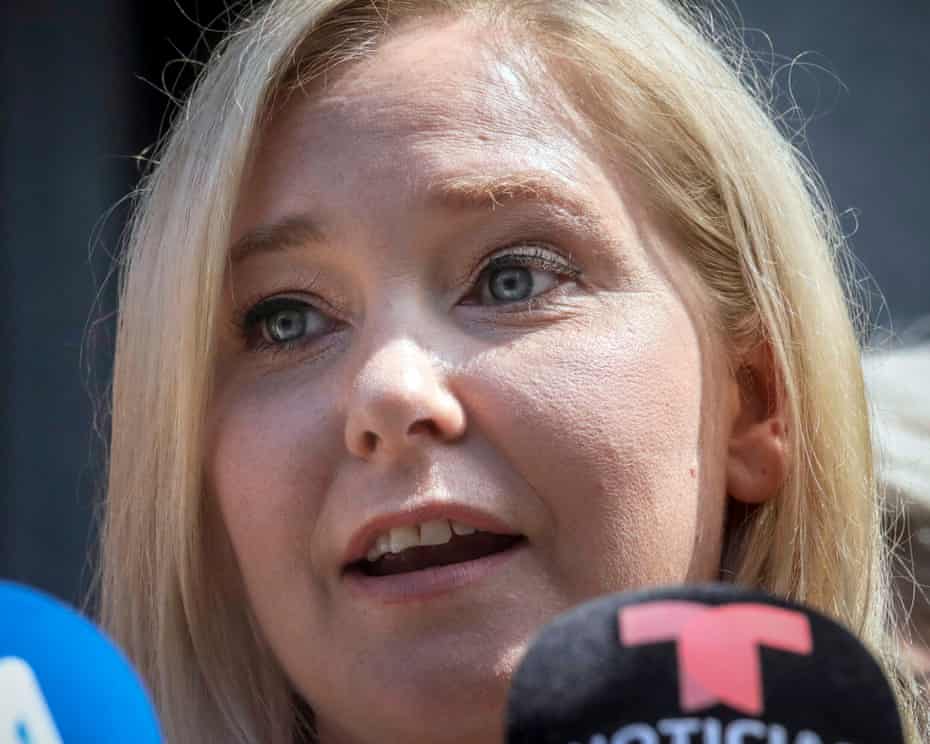In a historic and unprecedented announcement, Buckingham Palace has officially stripped Prince Andrew, now referred to as Andrew Mountbatten Windsor, of his royal title and ordered him to vacate his residence at Windsor’s Royal Lodge. The decision comes amid ongoing controversy surrounding his ties to convicted sex offender Jeffrey Epstein and is being hailed by women’s rights advocates as a significant acknowledgment of survivors of abuse.
The palace statement, issued on Thursday, explicitly emphasized the royal family’s support for survivors. It read: “Their majesties wish to make clear that their thoughts and utmost sympathies have been and will remain with the victims and survivors of any and all forms of abuse.”
For many, the statement is more than a symbolic gesture. It represents a rare moment in which a prominent institution publicly acknowledges the experiences of abuse survivors. According to Sky Roberts, the brother of the late Virginia Giuffre, who accused Prince Andrew of sexual abuse, the statement signals a clear shift in the royal family’s stance.
“Absolutely, I think that he’s speaking very clearly in that statement when he says he’s with survivors out there,” Sky Roberts told reporters. “It’s an acknowledgment that something occurred, something has happened. There has been a shift.”
Virginia Giuffre, who died earlier this year, had long alleged that she was forced to have sex with Prince Andrew on three separate occasions when she was a teenager. The prince has consistently denied any wrongdoing. In 2022, he reached a reported £12 million civil settlement with Giuffre, without admitting liability.
Amanda Roberts, Giuffre’s sister-in-law, described the palace’s move as a “victory” and “vindication” for Virginia. She noted that while the family celebrates this public acknowledgment, there is also an element of sorrow. “We’re just so exceptionally proud of her, but then the sorrow hits because you wish she was here to share this moment together with her – a moment that she has been waiting for, for a very long time,” Amanda said.
Women’s rights groups and advocacy organizations in both the UK and the US welcomed the royal family’s statement, with many noting the significance of recognizing survivors publicly.
Gemma Sherrington, chief executive of Refuge, said it was “incredibly powerful to see survivors recognized so directly in a statement from the palace.” She added that such acknowledgment sends a crucial message: “Survivors matter, that their experiences are believed, and that they deserve to be at the heart of national conversations about abuse.”
Similarly, Penny East, chief executive of the Fawcett Society, emphasized the importance of centering the conversation on the victims rather than public embarrassment for politicians or royalty. “It is a welcome acknowledgment that the real victims here are not embarrassed politicians or disgraced princes, but the women and girls who were sexually assaulted by entitled, misogynistic men,” East said.
However, advocates also caution that symbolic measures, like removing a royal title or relocating a residence, are not substitutes for genuine accountability. East noted, “Removing a title, or moving house can never be viewed as true accountability or sufficient punishment. Indeed, one brave woman, Virginia Giuffre, has lost her life. It was a terrible tragedy, and a reminder of the profound impact sexual assault has on women and girls.”
Sky Roberts described Giuffre as a “strong warrior” who combined determination with a playful spirit. “This is an ordinary girl from an ordinary family that did something extraordinary, and I think this is something the world should be proud of,” he said. “She was this strong warrior who refused to back down and refused to stay silent, and we are finally getting that acknowledgment that she truly was a world hero.”
The palace declined further comment on the matter, but the message seems clear: survivors of abuse deserve recognition and support, even when the accused are high-profile figures.
This development comes at a critical time in the broader conversation about sexual abuse and accountability. High-profile cases like these have long drawn attention to systemic failures in protecting victims and ensuring justice, especially when the accused are figures of power or influence.
Support networks remain crucial for survivors. In the United Kingdom, Rape Crisis provides confidential support for victims of rape and sexual abuse at 0808 802 9999 in England and Wales, 0808 801 0302 in Scotland, and 0800 0246 991 in Northern Ireland. In the United States, the organization RAINN (Rape, Abuse & Incest National Network) can be reached at 800-656-4673. In Australia, support is available at 1800Respect (1800 737 732). For a more comprehensive list of international helplines, see ibiblio.org/rcip/internl.html.
For the public and survivors alike, the royal family’s statement marks a watershed moment. While symbolic, it is a formal acknowledgment from an institution often criticized for its silence in the face of controversy. The message is clear: survivors’ voices matter, and society must recognize their courage and resilience.
As this story develops, it is likely to continue sparking debates about accountability, power, and justice, not just in the UK but internationally. For the families of survivors, for advocates, and for the broader public, the hope is that this historic action may serve as both recognition of past wrongs and a step toward a culture where abuse is never ignore

